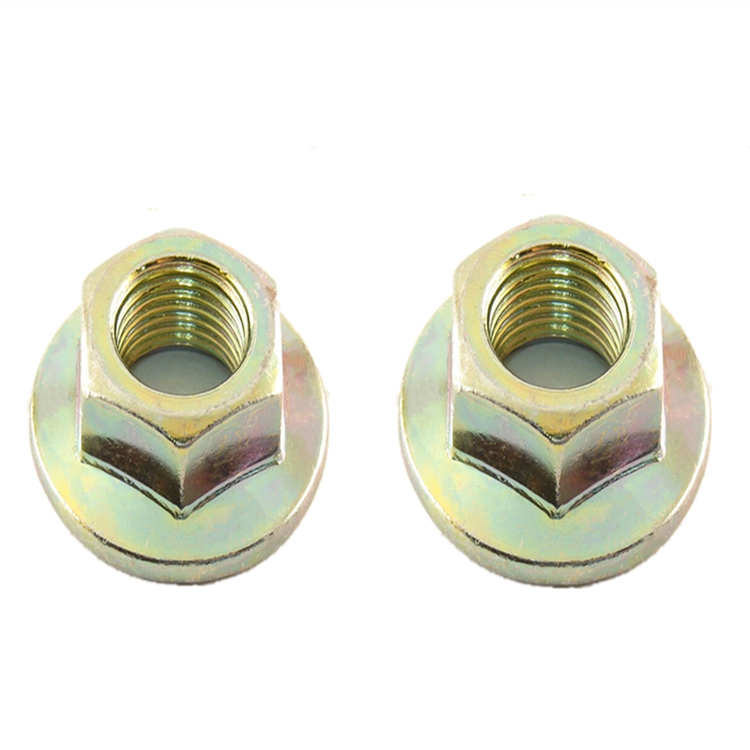Trailer Deck Screw Solutions for Manufacturing Excellence and Durability
நவ் . 30, 2024 16:08 Back to list
Trailer Deck Screw Solutions for Manufacturing Excellence and Durability
Understanding Screws for Trailer Deck Manufacturing
When it comes to manufacturing trailer decks, the choice of screws is a critical consideration that can significantly influence the overall quality, durability, and performance of the trailer. The right screws ensure a sturdy build, accommodate various environmental conditions, and provide safety during operation. In this article, we delve into the essential aspects of screws for trailer deck factories and how they impact the manufacturing process.
Importance of Choosing the Right Screws
The screws used in trailer deck construction perform several essential functions. They secure the wooden or composite decking material to the underlying frame, support the structural integrity of the trailer, and contribute to its longevity. Choosing the wrong type of screw can lead to various problems, including structural failure, water damage, and increased maintenance costs.
Types of Screws Used in Trailer Deck Manufacturing
1. Wood Screws Often made from steel or stainless steel, wood screws are specifically designed for securing wooden deck planks. They typically feature a sharp point, coarse threads, and a flat head to provide excellent grip and penetration. For outdoor trailers, rust-resistant finishes are crucial to prevent corrosion from exposure to the elements.
2. Self-Tapping Screws These screws are known for their ability to create their own hole as they are driven into the material. This not only expedites the installation process but also leads to a tighter fit. Self-tapping screws are particularly advantageous when working with composite materials or harder woods.
3. Lag Screws As a heavy-duty option, lag screws are used where extremely strong connections are necessary. Their larger diameter and hex or square head allow for high torque applications, making them ideal for securing heavier loads typical of trailer decks.
4. Deck Screws Specifically designed for outdoor use, deck screws often feature a special coating to resist corrosion and wear, making them perfect for trailers that frequently travel through various weather conditions.
Coatings and Treatments
screws for trailer deck factory

For trailer deck screws, the choice of finish is as crucial as the type of screw itself
. Common protective finishes include- Galvanization This involves coating the screws with a layer of zinc, providing excellent resistance to rust and corrosion. - Polymer Coating Some screws are coated with a polymer finish that further enhances corrosion resistance and provides additional protection against the elements.
- Stainless Steel Stainless steel screws are inherently resistant to rust and are often used for coastal or humid environments where moisture is prevalent.
Installation Techniques
The installation of screws into trailer decks requires precision to ensure the longevity and safety of the structure. Here are some techniques to consider
- Pilot Holes Drilling pilot holes can prevent wood from splitting and make it easier to drive screws into denser materials.
- Proper Torque Over-torquing screws can cause damage to the material, while under-torquing can result in loose connections. Using a torque wrench to ensure the right tension can lead to a more durable assembly.
- Spacing Adequate spacing between screws is vital for distributing loads evenly across the deck. This helps to prevent localized stress that could lead to failure over time.
Conclusion
In conclusion, the choice of screws in trailer deck manufacturing is paramount for ensuring the strength, durability, and safety of the finished product. By understanding the various types of screws available, their coatings, and the installation techniques, trailer manufacturers can produce high-quality trailers that stand the test of time. Whether designing a trailer for commercial use or personal enjoyment, recognizing the importance of the right hardware will ultimately lead to a more reliable and safer product for consumers. Investing the time and resources into selecting the best screws will pay off immensely in the performance and longevity of trailers.
Latest news
-
Reliable Axle Nuts Supplier | High-Quality Automotive Parts
NewsAug.19,2025
-
Premium Wire Bolts Suppliers | Durable & Reliable Fasteners
NewsAug.18,2025
-
Leading Metric Wood Screw Companies & Manufacturers
NewsAug.17,2025
-
Top Wire Bolts Suppliers - Quality & Durable Fasteners
NewsAug.15,2025
-
Trusted Wire Bolts Company | Quality Fasteners Supplier
NewsAug.14,2025
-
Reliable Wire Bolts Suppliers & Manufacturers for Global Needs
NewsAug.13,2025
